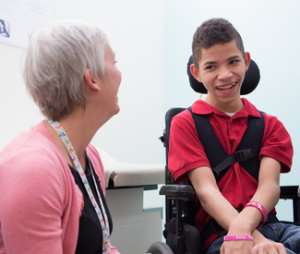ENCEPHALOPATHY
Encephalopathy – a category of nervous system disorders derived from Greek (ἐνκέφαλος “brain” + πάθος “suffering”) — isn’t a single disease. Rather, it’s a group of disorders that have numerous causes, treatments, and health outcomes for those who experience them. It’s a general term that means damage to the brain that changes the function of the organ.
Encephalopathy requires treatment. Without proper medical interventions, serious negative health outcomes might result.
Let’s explore what encephalopathy is, how it manifests, how it’s treated, and the current state of treatment strategies.
Encephalopathy vs encephalitis
It’s important to distinguish encephalopathy from encephalitis. In the former, the brain works dysfunctionally due to illness or injury. In the latter, encephalitis, an acute and potentially fatal condition, the brain is swollen or inflamed.

What is encephalopathy?
The term “encephalopathy” is used as a generic description of a person with an impairment of brain function. At times, clinical manifestations of encephalopathy may include ADHD, mild learning disabilities, or it might affect children and adults with severe brain injury.
What are the types of encephalopathy?
There are multiple (dozens) of types of encephalopathy with different causes, symptoms and treatments. Identifying the correct type is essential for effective treatment.
The most common types of encephalopathy include:
- Static encephalopathy (permanent brain damage, often caused by exposure in the womb to alcohol)
- Hashimoto’s encephalopathy (caused by an autoimmune disorder in which the body attacks its own tissues)
- Hypertensive encephalopathy (due to chronically elevated blood pressure)
- Hepatic encephalopathy (due to liver dysfunction)
- Mitochondrial encephalopathy (a metabolic disorder caused by dysfunction of the mitochondrial DNA)
- Chronic traumatic encephalopathy (caused by head trauma – often seen in football players and other contact sports athletes, one of the reasons that parents are increasingly wary of allowing their children to participate in these activities)
- Toxic encephalopathy (caused by exposure to toxic chemicals or certain medications)
- HIV encephalopathy (associated with HIV/AIDS
- Transmissible spongiform encephalopathy (infectious forms of the disease such as Creutzfeldt–Jakob disease that are progressive and fatal)
What are the symptoms of encephalopathy?
The primary clinical feature of encephalopathy is delirium (“a condition of rapidly changing mental states such as behavior, emotions, in and out of consciousness, hallucinations, and memory problems”) or altered mental state.
Other symptoms of encephalopathy might include:
- Dysarthria
- Inability to concentrate
- Jactitation (tossing and turning in bed)
- Cheyne-Stokes respiration, post-hypercapnic apnea and other conditions characterized by abnormal breathing patterns
- Ataxia (uncoordinated movements often involving gait) and other problems with movements
- Tremor (involuntary, often rhythmic muscle contractions)
How do neurologists treat encephalopathy?
The treatments for encephalopathy range widely depending on the type and severity of the condition on a case-by-case basis. Commonly prescribed medications to treat encephalopathy include:
- Sympathomimetic drugs (drugs that agonize, or stimulate, the sympathetic nervous system)
- Anticonvulsants
- Dialysis
- Nutritional supplements
- Dietary changes (when the root cause is diet)
What is the prognosis for encephalopathy?
Because the root cause of encephalopathy can vary widely, prognosis depends on the ability to identify and treat the underlying culprit, not to merely manage symptoms. For instance, if the cause is high blood pressure, lifestyle changes and medications to lower blood pressure can reduce symptoms
For some types of encephalopathy, there is no known current effective treatment. Ongoing research promises to change that in the future.
New and emerging treatments for encephalopathy
Researchers are currently exploring breakthrough therapies for the different kinds of encephalopathy.
The publicly-funded NIH National Institute of Neurological Disorders and Stroke is at the forefront of such research, conducting clinical trials in the US and worldwide to identify and investigate potential new treatments.
If you’re interested in potentially becoming part of the solution in the search for more effective treatments for encephalopathy, learn more about how clinical trials work and their immense value to scientific progress.
Contact Child Neurology Center of Northwest Florida to learn more about encephalopathy
The current state of medical research regarding encephalopathy is markedly more advanced than it was just a few years ago. Moving forward, we expect to see even more results from the innovative work of researchers. To learn more about encephalopathy and how it can be managed, treated, and ideally cured in the future following more research, contact Child Neurology Center of Northwest Florida.



